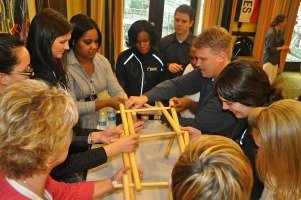
In the United States, the number of women in science, technology, engineering and math (STEM) careers still pales in comparison to their male counterparts. Several theories arise to explain the discrepancy. One study points to five biases that push women out of careers in science.
Biases Holding Back Women in Science
In the study, 557 female scientists took surveys, and 60 women scientists were interviewed. The results:
- Two-thirds from each group reported that they had to prove themselves repeatedly as their expertise was called into question.
- Women often find themselves trying to balance between the feminine behaviors expected of them and stereotypical masculine behaviors that are considered more competent.
- After having children, professional women feel that their competence and commitment to the job is continually questioned, which begins to limit their opportunities.
- Because of the lack of women in STEM work environments, 75 percent of those surveyed report that women support one another at work, while 20 percent report feeling they are in competition with their female colleagues.
- Many women feel isolated from their colleagues because they feel that socializing with their female coworkers could result in a negative perception of their competence.
The study indicates the implicit biases and sexism that prevail in the workplace. Co-workers may not be fully aware of the attitudes they possess that negatively impact women and stifle the success of an organization.
We need more professionals in STEM fields overall, and it only hurts industries to overlook roughly half the working population. Realizing there is a problem integrating women isn’t enough. Overcoming these biases takes conscious effort.
Inclusive, interactive training can help reshape the work culture and unleash talent that may have been repressed. Venture Up has helped many companies promote inclusivity in the workplace with fun, uplifting experiential training models that promote diversity and teamwork.
